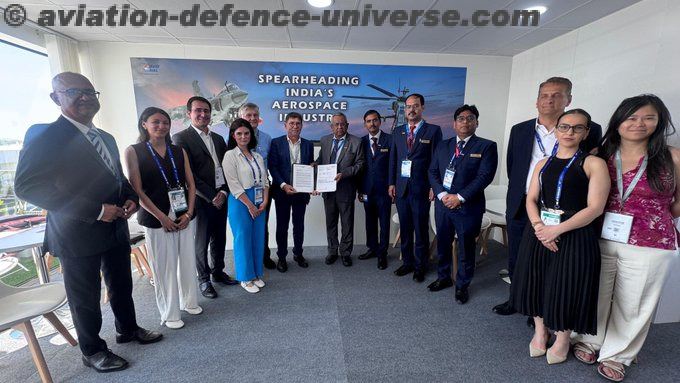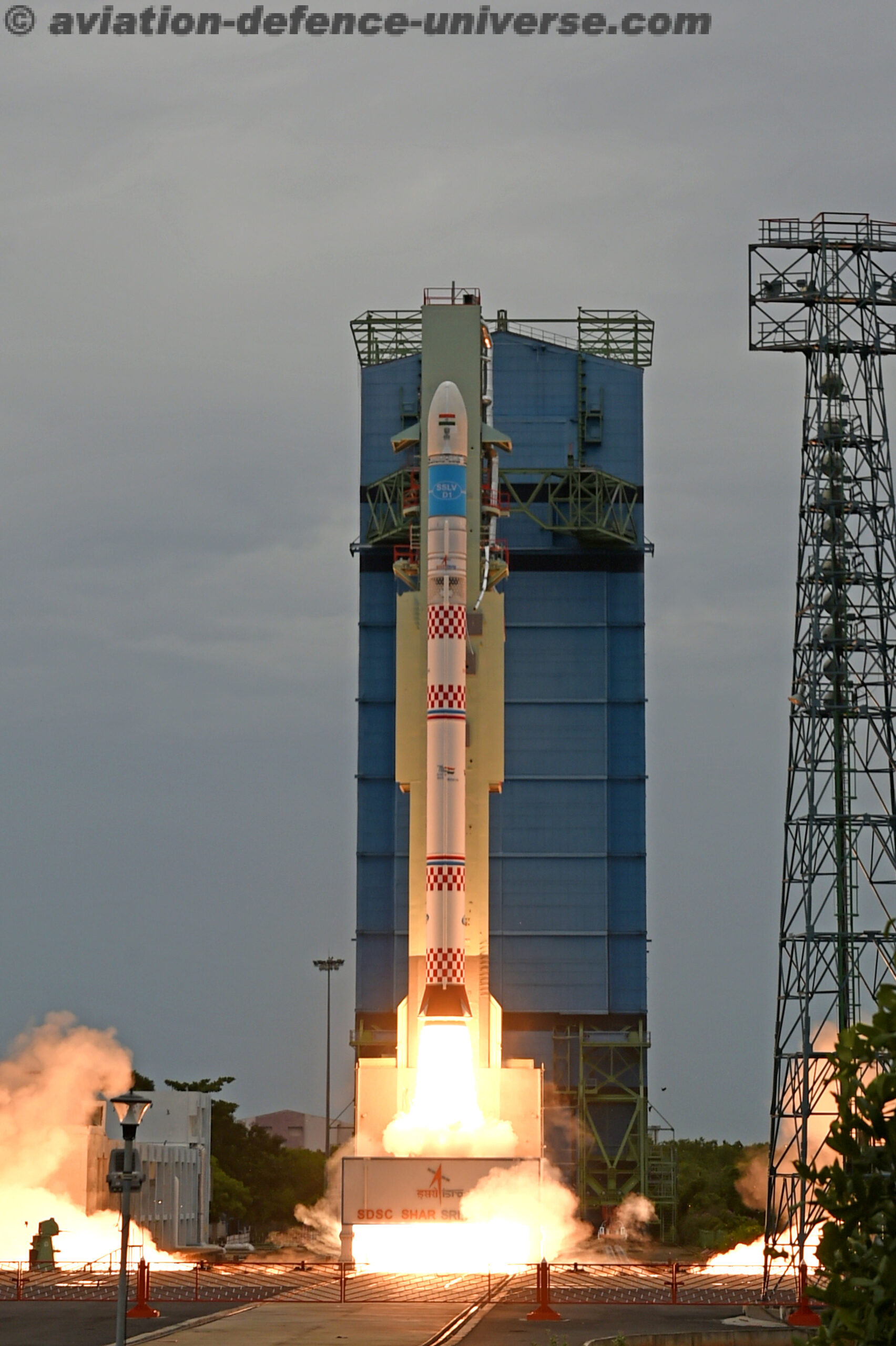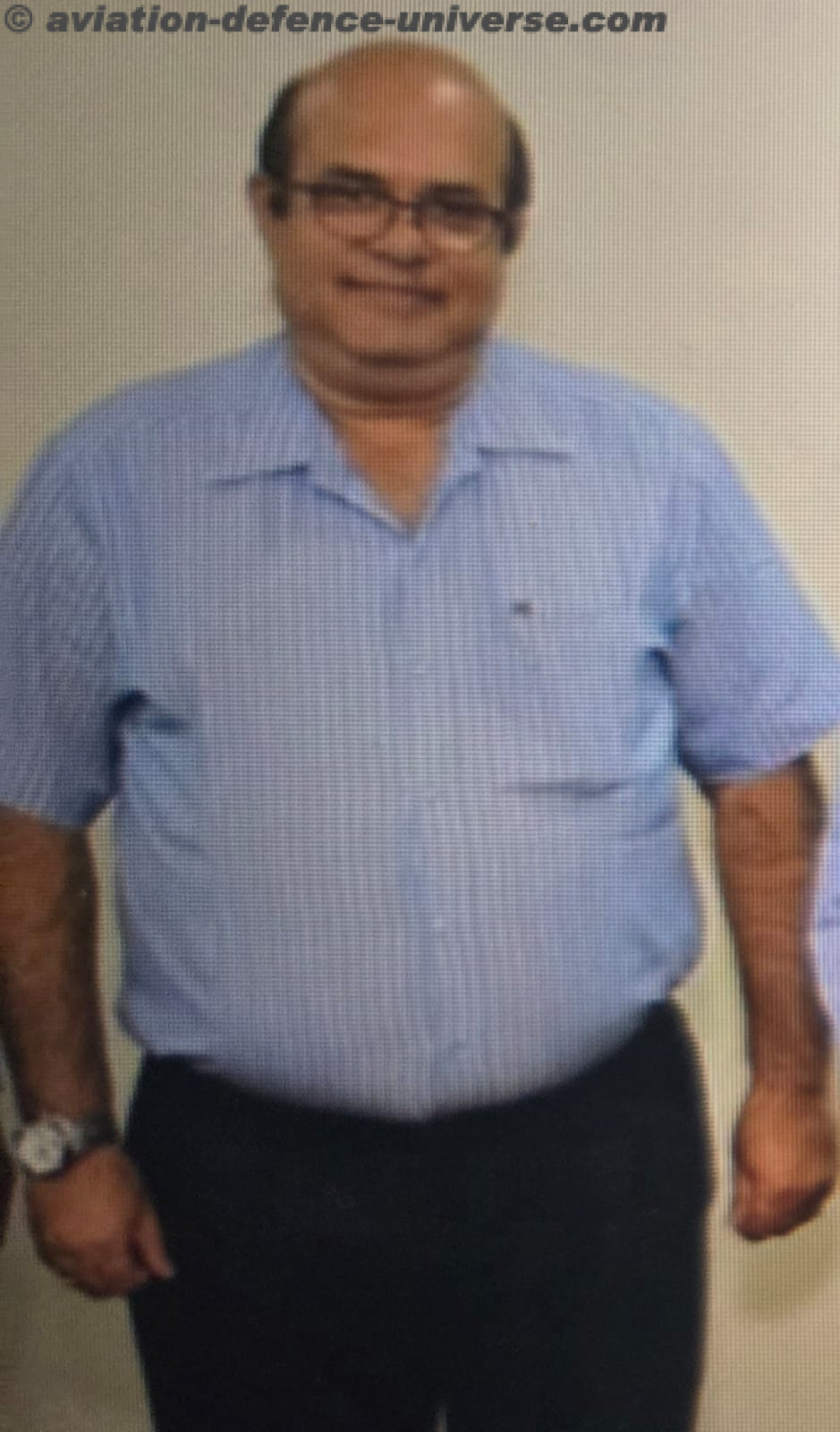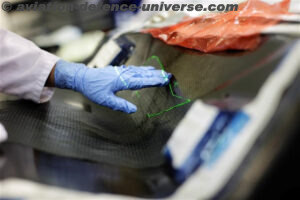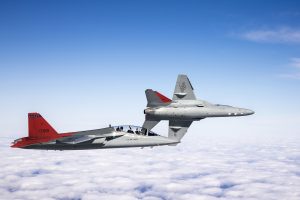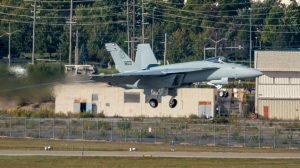
By Sangeeta Saxena
New Delhi. 29 October 2021. This is a journey blessed by St. Valentine and began on February 14, 1945, when the then U.S. President Franklin D. Roosevelt presented a twin-engine DC-3 Dakota airplane, manufactured by Boeing’s heritage company Douglas Aircraft, to King Abdulaziz Al Saud. The relationship blossomed to a level that Boeing established Boeing Middle East Limited in Riyadh in 1982. But four years prior this in 1978 Royal Saudi Air Force expanded this relationship to Boeing Defense & Space by purchasing F-15C/D and the list kept growing. From F-15 S to Apache attach helicopters to Harpoon Missiles to E-3A AWACS to KC-3A cargo tankers, it has been a relationship which moved ahead steadily and strongly.
The relationship transcended across the borders and in 1999 Boeing opened its Integrated Defense Systems, now known as Boeing Defense & Space, office in Abu Dhabi and in 2005, Boeing established its headquarters for Boeing Middle East in Dubai. Three years later in 2008, Boeing started it’s defence and space journey in Qatar with an order for two C-17s , added two more to it’s fleet in 2012 and four more in 2015. This journey continued with the order of 24 AH-64E Apache attack helicopters. And the next country in the region which became a great partner in Boeing’s journey in the region is Kuwait. It is a long list of Defense, Space & Security products provided to Kuwait by Boeing and this includes AH-64D Apaches, F/A-18C/D Classic Hornets, C-17s, F/A-18 weapons tactics trainers and Harpoon Block IC missiles. This can be traced back to 1974, when the Kuwaiti Air Force (KAF) ordered 36 A-4KU Skyhawks from Boeing-heritage company McDonnell Douglas.
Returning to the present, when the world is coming out of the dark clouds of the pandemic caused by the COVID-19 virus, Dubai is all set to host its biannual Airshow in a fortnight from now. Rick Lemaster, Business Development Leader, Middle East, North Africa, Turkey and Israel stated, “ Looking ahead to the next 10 years, Boeing knows that much of it’s growth will come from outside of the United States. Of the $2.6 trillion defense and space market opportunities, about 40% of expenditures are expected to originate outside of the United States, driven by geopolitical and security challenges. As of the end of the second quarter of this year, the Boeing Defense, Space & Security backlog stood at $59 billion, of which 32 percent represents orders from customers outside the U.S. Demand for it’s Government Services business remains stable, driven by both U.S. and international military aircraft fleet expansions. Boeing expects the government support and services 10-year market (between 2021 and 2030) to be worth $1.5T.”
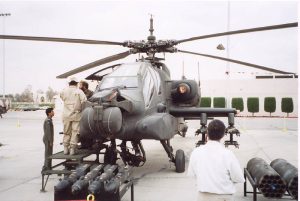
Ellaborating on the company’s strategy in the Middle East Rick explained, “Our strategy for Boeing’s defense business is to design and deliver the most digitally advanced, simply and efficiently produced solutions and intelligently supported solutions to the warfighter. By doing this, our customers are going to be able to field faster at a lower price – and fight smarter to stay ahead of threats. We’re designing and building products differently and we know how to adapt amid a disrupted marketplace, evolve our capabilities and scale innovative offerings to meet the ever-changing needs of our customers. We’re investing in technologies and processes that enable us to provide the right capabilities, at the right time, for the right cost, so we can increase quality and decrease the amount of money spent on training, operating, and maintaining our products.”
Boeing is particularly excited about innovative programs such as T-7 and Airpower Teaming Systems for it’s international customers. “ Executing on the U.S. Air Force contract for the T-7A Red Hawk is our top priority right now and will strengthen our ability to serve the international market.We are in discussions with several customers on their requirements, including here in the Middle East, for a light attack variant. Customers will benefit greatly from the T-7’s advanced pilot training system, providing real-as-it-gets simulation, interactive classroom lessons, computer-based training modules, adaptive training that adjusts to students’ needs, and a complete suite of instructor tools – for optimum results on the ground and in the “classroom in the sky,” he informed.
Additional aircraft are currently under development, with plans for teaming flights scheduled with aircraft prototypes and digital twin models later this year.” In addition, as part of our strategy, there’s a lot of development that has gone into product improvements to baseline programs like AEW&C/E-7, Chinook, Apache, tanker, P-8, Integrator ER, ScanEagle and Wave Glider. Boeing is making significant investments in the future by innovating with new systems while continuing to sell our franchise programs. Middle East customers will benefit from the innovation and investments in these products as customers in the region have a renewed focus on fleet modernization and look for ISR capabilities as well as humanitarian assistance/disaster relief, and search/rescue, ” Lemaster stated.
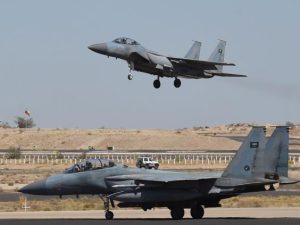
He explained, “We’ve developed strong partnerships with the UAE’s Ministry of Defense, the Air Force and Land Forces and are committed to provide advanced capabilities, training and sustainment solutions to keep the warfighter safe and aircraft fleets mission ready. In terms of future opportunities, we are in discussion with our UAE customers on capabilities such as the T-7 Advanced Pilot Training System, CH-47 Chinooks and Integrator ER.”
Boeing’s industrial cooperation program with the UAE enables opportunities for collaboration with local industry. These opportunities will lead to an even deeper and longer term presence in the UAE for Boeing. It values the important and successful partnership with Tawazun, and is constantly looking to deepen it’s productive partnership with Tawazun Economic Council and the UAE on future growth opportunities.
It may be recalled that the UAE is the largest international operator of Chinook CH-47F helicopters after the U.S. with 20. It also has strategic airlift capability with its C-17 fleet being used for humanitarian missions. Boeing Global Services provides performance-based logistics sustainment support for the UAE’s AH-64D Apache helicopters, as well as sustainment and heavy maintenance for the UAE’s C-17 fleet and support for the C-17 aircrew training center.
“In Qatar, we have several important opportunities that we’re pursuing. We are in conversations with the Qatar Emiri Air Force on requirements for a standard range Chinook. In 2014, Qatar ordered 24 AH-64E Apache attack helicopters, with deliveries starting 2019. In August 2020, the final aircraft were delivered to the Qatar Emiri Air Force. We are interested in talking to our Qatari customer about the KC-46 tanker that will bring unmatched capability and operational flexibility to international customers,” Rick stated.
The U.S. Department of Defense awarded Boeing a $6.2 billion contract in 2017 to manufacture 36 F-15 fighter jets for the QEAF. In August, Boeing, in collaboration with the U.S. Air Force and Qatar Emiri Air Force, celebrated the naming and rollout of Qatar’s advanced F-15, the F-15QA. The first set of F-15QA jets will ferry to Qatar later this year following the completion of pre-delivery pilot training. Since late 2019, Boeing has been awarded three FMS contracts from the US Air Force to provide F-15QA services support for the Qatar Emiri Air Force.
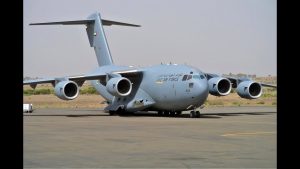
“The first five-year contract awarded will support Qatar’s air force with F-15QA programme management, maintenance and air crew training. We also received a separate not-to-exceed $68 million contract to provide maintenance and logistics support to Doha during pre-delivery training for the F- 15QA aircraft, which began in 2021. Lastly, a third contract worth more than $500 million will provide in-country spare parts and logistics support for the F-15QA once the aircraft are delivered to Qatar,” he added. Boeing is also working on providing worldwide Navigation Database, Terrain Data, and mission planning tools for the C-17 fleet.
In Egypt, Boeing is looking at opportunities with the Apache, Chinook and Scan Eagle. The government has requested to remanufacture and upgrade 43 Apache D models and we look forward to working with them on the opportunity.
“We are honored to work with our Kuwaiti customer in bringing the Block III F/A-18 and its next-generation capabilities to the Kuwaiti defense forces. Kuwait will be the first country to fly the advanced cockpit system, which is the most cutting-edge cockpit available today. Boeing delivered the final Kuwait Super Hornet to the U.S. Navy this summer. The Government of Kuwait has requested to buy 8 Apache helicopter and remanufacture their 16 Apache D models to the E configuration. The Congressional Notification for that sale completed in January 2021. We welcome interest in the AH-64E Apache and look forward to working with the U.S. Army and Kuwait Air Force on this Opportunity,” he informed.
In Saudi Arabia, the US aerospace major is pursuing opportunities for Apache, Chinook and AEW&C.” We are currently building Chinooks as part of original FMS contract for 8 aircraft and pursuing additional orders and opportunities. We’ve started deliveries of the CH-47F Chinooks to the U.S Government as part of the FMS process,” he said.
“We were pleased Morocco acquired the AH-64 Apache in 2020 through a contract for 24 helicopters. It becomes the 17th country to acquire this world class attack capability. Boeing will build and deliver Morocco’s Apaches under a contract with the U.S. Army through the U.S. government’s Foreign Military Sales process. In addition, we received a contract for logistics support in 2021 that will provide Longbow Crew Trainers, spares and ground support equipment to support the Moroccan fleet. We also see Chinook as an opportunity for Morocco,” he added.
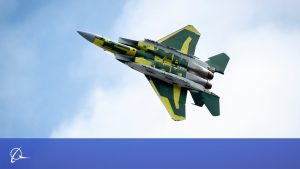
Rick Lemaster concluded the pre-Dubai Air Show press conference by saying, “To sum up, there are significant opportunities for Boeing in the Middle East and it is a region of very strategic importance to us in terms of growth, partnerships, investments and presence. We plan to continue having discussions with customers across the region and meet the demand for proven, capable and innovative products and services that only Boeing can offer. In addition, we have seen significant changes in the geopolitical environment over the past six months and we look forward to continuing to build on the foundation of trust the Boeing Company has established with our customers in the region.”














